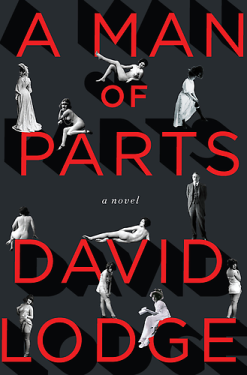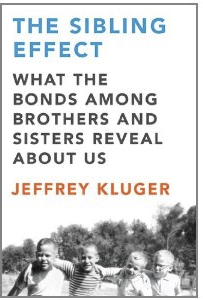- HOME
- INTRO TO THE FORUM
- USE AND MISUSE
- BADLY WRITTEN, BADLY SPOKEN
- GETTING
TO KNOW ENGLISH - PREPARING FOR ENGLISH PROFICIENCY TESTS
- GOING DEEPER INTO ENGLISH
- YOU ASKED ME THIS QUESTION
- EDUCATION AND TEACHING FORUM
- ADVICE AND DISSENT
- MY MEDIA ENGLISH WATCH
- STUDENTS' SOUNDING BOARD
- LANGUAGE HUMOR AT ITS FINEST
- THE LOUNGE
- NOTABLE WORKS BY OUR VERY OWN
- ESSAYS BY JOSE CARILLO
- Long Noun Forms Make Sentences Exasperatingly Difficult To Grasp
- Good Conversationalists Phrase Their Tag Questions With Finesse
- The Pronoun “None” Can Mean Either “Not One” Or “Not Any”
- A Rather Curious State Of Affairs In The Grammar Of “Do”-Questions
- Why I Consistently Use The Serial Comma
- Misuse Of “Lie” And “Lay” Punctures Many Writers’ Command Of English
- ABOUT JOSE CARILLO
- READINGS ABOUT LANGUAGE
- TIME OUT FROM ENGLISH GRAMMAR
- NEWS AND COMMENTARY
- BOOKSHOP
- ARCHIVES
Click here to recommend us!
TIME OUT FROM ENGLISH GRAMMAR
This section features wide-ranging, thought-provoking articles in English on any subject under the sun. Its objective is to present new, mind-changing ideas as well as to show to serious students of English how the various tools of the language can be felicitously harnessed to report a momentous or life-changing finding or event, to espouse or oppose an idea, or to express a deeply felt view about the world around us.
The outstanding English-language expositions to be featured here will mostly be presented through links to the websites that carry them. To put a particular work in better context, links to critiques, biographical sketches, and various other material about the author and his or her works will usually be also provided.
The gifted British sci-fi writer who pursued sex obsessively
Many of us know him for writing the spellbinding science-fiction classics The Time Machine and The War of the Worlds, and perhaps some are also aware that he was a highly gifted autodidact who came up with the bestselling The Outline of History, but how many of us know that he wrote a total of no less than 100 books in different genres, strongly advocated socialism and sexual equality, and pursued sex so obsessively that—by his own nonchalant admission—he had bedded no less than 100 women during his 80-year lifetime?

That man, of course, is the multitalented British writer H. G. Wells, and in A Man of Parts (Harvill Secker, 576 pages), British academic and novelist David Lodge blends fact with his imagination to chronicle Wells’s remarkably complex life as a creative artist, social thinker, ideologue, and lover. In this often racy and absorbing but consistently scholarly account of Wells’s life, Lodge makes a vivid semibiographic portrait of a radical visionary who—apart from being a highly successful science-fiction writer—prophesied such modern modern-day inventions as armored tanks, aerial warfare, the atomic bomb, and the Internet; championed world government; and espoused women’s equality with men and the fairer distribution of private land.
But a pervasive leitmotif to this astoundingly productive life were the many amorous pursuits of Wells, who looked at sex as a matter-of-fact recreation “like tennis or badminton.” Indeed, in one of the imaginary lively conversations between the aging Wells and a probing internal voice, the latter asks him: “You don’t admit that there was something compulsive about your womanizing?” To this Wells answers defensively: “I just happen to enjoy sex.”
Read excerpts from David Lodge’s A Man of Parts at Amazon.com now!
Read Michael Dirda’s review of David Lodge’s A Man of Parts in the Washington Post now!
Read Christopher Benfey’s “H.G. Wells, the Man Who Invented Tomorrow” in The New York Times now!
ABOUT THE AUTHOR:
David Lodge is a novelist, literary critic and emeritus professor of English literature at Birmingham University, where he taught for many years. His novels, which have been translated into some 25 languages, include Changing Places, Small World, Nice Work, Therapy, and Deaf Sentence. He has also written stage plays and screenplays. He has a BA (1955) and MA (1959) from University College, London and a PhD (1967) and an Honorary Professorship (1987) from the University of Birmingham. Lodge is a Fellow of the Royal Society of Literature.
OTHER INTERESTING READINGS:
In “Teenage Brains,” an article he wrote for the October 2011 issue of National Geographic, David Dobbs argues that viewed through the lens of evolution, the most exasperating traits of teenagers may in fact be the key to their success as adults. He says that recent brain and genetic research findings show adolescents in a brighter, more flattering light. “The resulting account of the adolescent brain—call it the adaptive-adolescent story—casts the teen less as a rough draft than as an exquisitely sensitive, highly adaptable creature wired almost perfectly for the job of moving from the safety of home into the complicated world outside,” he explains.
Read David Dobbs’s “Teeenage Brains” in National Geographic.com now!
In “What Our Siblings Do to Us,” an article in the September 23, 2011 issue of The New York Times, Alison Gopnik and Adam Gopnik review Jeffrey Kluger’s The Sibling Effect: Brothers, Sisters, and the Bonds That Define Us (Riverhead Books, 308 pages). They say that Kluger pursues at length the hyphothesis that the birth order of siblings is the crucial molder of intellectual attitude, offering “ a kind of pousse-café of anecdote, data, research, confession, gossip and then more anecdote, about sibling order, family hatred and, occasionally, brotherly and sisterly love.”

Read Alison and Adam Gopnik’s “What Our Siblings Do to Us” in The New York Times now!






